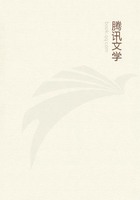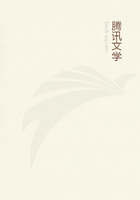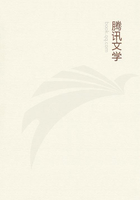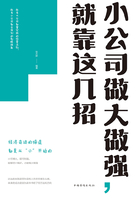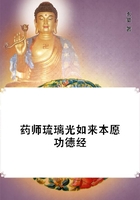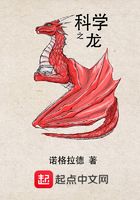Although victorious in the greatest battle of his life the position of Douglas was not easy. The people of Illinois were evidently no longer in sympathy with him. The Buchanan Administration and the Southern extremists had openly declared war on him for his cool indifference to the special interests of the South, his carelessness whether slavery was voted up or voted down in the Territories, and his hostility to their plans for planting it in Kansas. He was preparing for his last struggle for the Presidency. Having won this doubtful victory at home, he decided to make a tour of the South in the hope of stimulating its waning enthusiasm. In order to hold the Senatorship it had been necessary to please Illinois, even though the South were alienated. In order to win the Presidency he now resolved to satisfy the South, even though he offended Illinois. Moreover, being at war with the Administration, he hoped to return to Washington with the prestige of a re-election and a great Southern ovation. He intended to force Buchanan and his Cabinet to sue for peace. He was political strategist enough to understand the importance of a bold front and an imposing display of power at the outset of his next campaign.
He took boat at St. Louis for New Orleans and enjoyed the leisurely autumn trip down the River. He spoke at Memphis on November 29th, and at New Orleans on December 6th. He sailed to Havana and thence to New York, where he received a royal welcome. On reaching Philadelphia he was formally welcomed at Independence Hall. He then went to Baltimore and spoke in Monument Square on the evening of January 5th, returning to Washington next day. On the 10th he resumed his seat in the Senate.
He had told the people of Illinois that, in spite of the Constitution, the Supreme Court, the President and Congress, it was within the power of the inhabitants of a Territory to prohibit slavery by their unfriendly attitude. This doctrine was utterly abhorrent to the South, which now rested its entire case on the judicial interpretation of the Constitution and regarded all attempts to evade the full force of the Dred Scott decision as little less than treason. The net result of the struggles of a decade had been the establishment of a principle that the Constitution carried slavery with it wherever it went. To lightly treat the Constitution as a thing that could be quietly defied and annulled by the squatters, was to strip their great victory of all value and snatch from them the fruit of their labors. Had this doctrine of local nullification been sound, it was not to be expected that it would be received with enthusiasm or even with patience by men whose dearest hopes it must obviously defeat and whose subtle art and long protracted labors it utterly thwarted. But that daring sophism which attacked the very foundation of all legal authority, did violence to every sound principle of philosophy, and was utterly subversive of the peculiar and cherished doctrines of the South, should have been resorted to by Douglas to avoid defeat in Illinois, was viewed as a shameless outrage. It was believed that he had sacrificed their sacred cause in order to avoid a local reverse; that his seat in the Senate was dearer to him than their most valued interests.
It was probable that in his eagerness to win the Illinois campaign he had not considered seriously the irreconcilable repugnance of his distinctive dogma to the compact body of Southern political philosophy. It was now necessary to present it to the South in such dress that it might, if possible, gain acceptance, at least that it might not shock the deepest prejudices of that section.
In addressing his Southern audiences he attempted to take the sting out of his obnoxious doctrine by showing that it was entirely harmless. The people of the Territories, he said, doubtless had the practical power, in spite of the Constitution, statutes and decisions, to exclude slavery by their unfriendly attitude toward it. But what would determine their attitude? Clearly their selfish interests. If slavery would be profitable, their attitude would be friendly and it would take root and flourish under the protection of the law. If by reason of soil or climate it would be unprofitable, their attitude would be unfriendly and neither laws nor Constitutions could successfully foster it. But it could not injure the South to exclude slavery from regions where it could only be maintained at a loss. It was not a question of ethics, but purely of physical geography. Where soil and climate rendered it profitable, it would spring up in precisely the same way as pine trees or maize.
But it was clear to his keen eye that these feats of ingenuity were taken at their real worth. While the people treated him with gracious courtesy, they prudently reserved their judgement. They paid generous honor to the great leader whom they would gladly use but dared not trust. He had chosen to hold Illinois and had lost the South.
While he was vainly trying to woo back the alienated South, a significant event occurred in Washington. When the Senate was organized during his absence, he was removed from the chairmanship of the Committee on Territories, which he had held since his first election. This was done by the Democratic caucus and indicated a deeper resentment than he had suspected. The Puritans of Illinois had once risen in insurrection against him. The Cavaliers of the South were now sternly protesting against his easy political morals.
For six weeks he preserved almost complete silence. His situation was anomalous. The quarrel with the Administration was implacable.
A few months before, the Republicans were inclined to court him;but the desperate battle with Lincoln had made it clear that his quarrel with them was on perennial questions of principle. Solitary and out of touch with all parties, he was yet recognized as the chief of the Northern Democrats and a formidable candidate for the Presidency.

